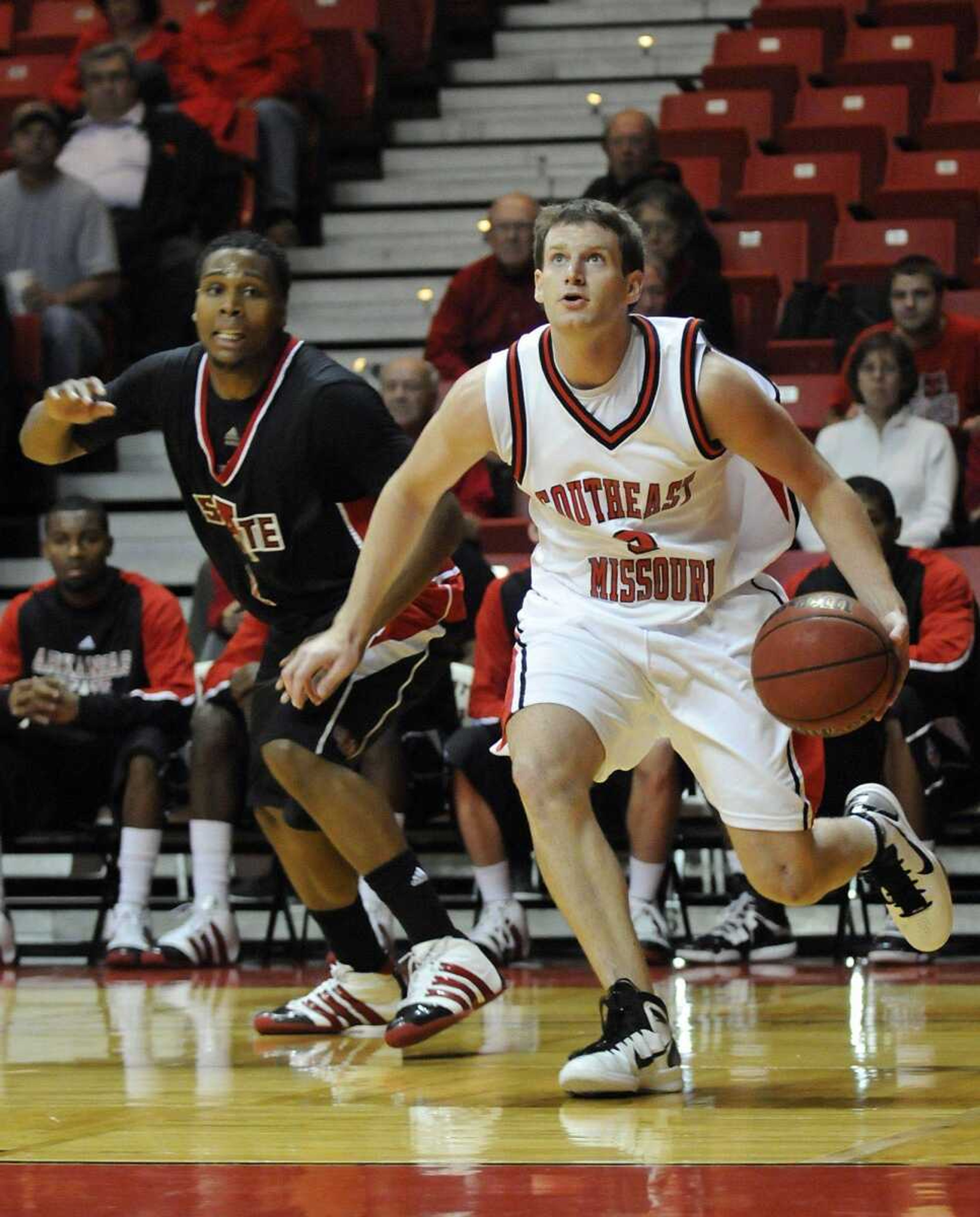Courtship series: Junior college offers chance to boost stock
Junior colleges provide a steppingstone for high school players who are deemed unprepared or are overlooked by four-year colleges in the world of college basketball recruiting. Junior colleges offer players a chance to play more minutes, receive exposure from coaches at four-year colleges and improve academically...
Junior colleges provide a steppingstone for high school players who are deemed unprepared or are overlooked by four-year colleges in the world of college basketball recruiting.
Junior colleges offer players a chance to play more minutes, receive exposure from coaches at four-year colleges and improve academically.
Southern Illinois University coach Chris Lowery has had several junior college transfers in recent years.
"We've had great success with Southeastern Illinois College," Lowery said. "This year we'll have our fourth and fifth players from there. We know how they're coached, how they'll play. There is an assistant at John A. Logan College who played for me and a former player of ours is at Southwestern Illinois College."
Lowery's experience is an example of networking that takes place between colleges.
Three Rivers Community College coach Gene Bess, the winningest junior college basketball coach in the country, uses his program's reputation to attract recruits. Three Rivers won National Junior College Athletic Association Division I titles in 1979 and 1992 and finished second in 2010.
"We usually try to sell our tradition, my dad's record and his longevity," Three Rivers assistant coach Brian Bess said. "Kids can get a quality education, and if they get their degree, they have a chance to go on and play at a four-year school."
It is also important for coaches to develop relationships with four-year coaches. Sometimes the relationships can be international. Three Rivers has recruited several players from Nigeria over the last decade.
"You have to have a network of friends," Brian Bess said. "They can be on the lookout for players for you. They can recruit your guy, and in-turn find someone for you down the road."
Former Bernie high school standout Anthony Beane, the only basketball player in Bernie history to have his jersey retired, wanted to play at the Division I level when he signed with Three Rivers. Beane's goal was met two years later when he transferred to Kansas State in 1991. He was an assistant coach at Southeast Missouri State from 1997 to 2000 and currently is an assistant coach at Illinois State.
"I knew [Bess] would continue to help me become a better player and would definitely get me ready for the Division I level," Beane said. "And the plus of everything was I knew I was going to get a lot of exposure because at the time Three Rivers was like it is now. Right before I came through, Latrell Sprewell had went there and went on to play at Alabama. They had numerous players play at the Division I level and my No. 1 goal was to play Division I."
Deonte Jones, a recent Charleston High School graduate, played for high school coach Danny Farmer, who played for Bess at Three Rivers.
"[Bess] has the same teaching [method] as the coach I had in high school, Danny Farmer," Jones said. "He has some of the same morals and same teaching. I wanted to go somewhere where I felt comfortable."
While having relationships is important, talent remains the ultimate factor.
"I don't know how critical it is for a JUCO to have a good relationship with a specific four-year school," Beane said. "I don't know if it's as critical as having a really good program that has talent to recruit every year."
Not all coaches of four-year programs like trying to build a winner by using junior college transfers since they only get the players for a couple of years. Other coaches are more open to recruiting junior college players to fill an immediate need.
"It differs from year to year," Southeast Missouri State coach Dickey Nutt said. "I would love to fill my team with high school guys for a lot of reasons. You can develop them, you can have them four years. However, you want to win. A lot of times when your program is not where you want it to be, you have to go out and get some immediate help."
Providence coach Keno Davis, who served as an assistant coach at Southeast Missouri State from 1997 to 2003 and was selected as the 2008 national coach of the year by six organizations while coaching at Drake University, said his program doesn't have a set formula to recruit only junior college or high school players.
"We recruit them all and try to find the best fit," Davis said.
Southeast Missouri accepted five junior college transfers during the offseason in an attempt to rebuild its program after it went 7-23 last season and lost its last eight games.
"It's all about having relationships with junior college coaches," Nutt said. "I let these coaches know that their job is just as important as our job. I have such tremendous respect for what they do."
Connect with the Southeast Missourian Newsroom:
For corrections to this story or other insights for the editor, click here. To submit a letter to the editor, click here. To learn about the Southeast Missourian’s AI Policy, click here.







